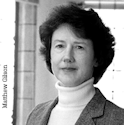Speakers and discussants

|
Daron Acemoglu, MIT
Daron Acemoglu is the Killian Professor of Economics at MIT. He was the recipient of the John Bates Clark Medal in 2005 and the Erwin Plein Nemmers Prize in 2012. His principal interests are political economy, development economics, economic growth, technology, income and wage inequality, human capital and training, and labor economics. His most recent works concentrate on the role of institutions in economic development and political economy.
|

|
Orazio Attanasio, UCL
Orazio Attanasio is a Professor in the Department of Economics at UCL and a Research Fellow at the Institute for Fiscal Studies, where he directs the Centre for the Evaluation of Development Policies (EDePo). He is vice president of the European Economic Association and will serve as President in 2014. His research interests include modelling household behaviour in developed and developing countries and, more generally, in Applied Econometrics. He is editor of Quantitative Economics.
|

|
Abhijit Banerjee, MIT
Abhijit V. Banerjee was educated at the University of Calcutta, Jawaharlal Nehru University and Harvard University, where he received his Ph.D in 1988. He is currently the Ford Foundation International Professor of Economics at MIT. In 2003 he co-founded the Abdul Latif Jameel Poverty Action Lab (J-PAL). His areas of research are development economics and economic theory. His latest book is "Poor Economics", with Esther Duflo.
|

|
Robert Barro, Harvard University
Robert J. Barro is Paul M. Warburg Professor of Economics at Harvard University, a senior fellow of the Hoover Institution of Stanford University, a research associate of the National Bureau of Economic Research, and co-editor of the Quarterly Journal of Economics. He has a Ph.D. in economics from Harvard University and a B.S. in physics from Caltech. His research topics include economic growth, public debt, monetary policy, and the impact of rare disasters on asset markets and macroeconomic activity.
|

|
Elhanan Helpman, Harvard University
Elhanan Helpman is the Galen L. Stone Professor of International Trade at Harvard University and a Fellow of the Canadian Institute for Advanced Research. Helpman's contributions include studies of international trade, economic growth and political economy. He is a cofounder of the "new trade theory'' and the "new growth theory,'' which emphasize the roles of economies of scale and imperfect competition. He holds a Ph.D. degree in Economics from Harvard University.
|

|
Angus Deaton, Princeton University
Angus Deaton is the Dwight D. Eisenhower Professor of Economics and International Affairs at the Woodrow Wilson School and the Economics Department at Princeton University. He is a corresponding Fellow of the British Academy, a Fellow of the American Academy of Arts and Sciences, and of the Econometric Society and, in 1978, was the first recipient of the Society's Frisch Medal. His main current research areas are in health, wellbeing, and economic development. He was President of the American Economic Association in 2009.
|

|
Esther Duflo, MIT
Esther Duflo is the Abdul Latif Jameel Professor of Poverty Alleviation and Development Economics in the Department of Economics at MIT and a founder and director of the Abdul Latif Jameel Poverty Action Lab (J-PAL). Her research focuses on microeconomic issues in developing countries, including household behavior, education, access to finance, health and policy evaluation. Duflo studied at L'Ecole Normale Superieure in Paris, received a master's degree from DELTA in Paris and completed a PhD in Economics at MIT in 1999.
|

|
Claudia Goldin, Harvard University
Claudia Goldin is Henry Lee Professor of Economics at Harvard University and director of the NBER's Development of the American Economy program. Goldin is an economic historian and a labor economist. Her current research concerns women's evolving role in the economy and her previous work has covered topics such as slavery, emancipation, the post-bellum south, the economic impact of war, immigration, New Deal policies, inequality, technological change, and education. Goldin received her B.A. from Cornell University and her Ph.D. from the University of Chicago.
|

|
Peter Howitt, Brown University
Peter Howitt is Professor of Economics and the Lyn Crost Professor of Social Sciences at Brown University. Most of his research has been in the area of macroeconomics and monetary economics. He is one of the creators of the modern "Schumpeterian" approach to the theory of economic growth. He has been active in the search for new foundations to macroeconomics and monetary theory, and has written extensively on the subject of Canadian monetary policy.
|

|
Chad Jones, Stanford University
Charles I. Jones is the STANCO 25 Professor of Economics at the Stanford Graduate School of Business and a Research Associate of the National Bureau of Economic Research. He has examined theoretically and empirically the fundamental sources of growth in incomes over time and the reasons underlying the enormous differences in standards of living across countries. He graduated from Harvard College in 1989 and received his PhD from MIT in 1993.
|

|
Peter Klenow, Stanford University
Peter J. Klenow teaches economics at Stanford University, where he has held the Ralph Landau Chair in Economics since 2003. He has been an associate editor for the Quarterly Journal of Economics since 2008, and is currently an associate editor for Econometrica. Klenow's work has appeared in several prominent economics journals. His research focuses on the macroeconomic implications of micro data on productivity and prices.
|

|
Michael Kremer, Harvard University
Michael Kremer is the Gates Professor of Developing Societies in the Department of Economics at Harvard University and Senior Fellow at the Brookings Institution. He is a Fellow of the American Academy of Arts and Sciences, a recipient of a MacArthur Fellowship and a Presidential Faculty Fellowship, and was named a Young Global Leader by the World Economic Forum. Kremer’s recent research examines education, health, water and agriculture in developing countries.
|

|
Robert Lucas Jr., University of Chicago
Robert E. Lucas, Jr. is the John Dewey Distinguished Service Professor in Economics and the College at the University of Chicago. He received the Nobel Memorial Prize in Economic Sciences in 1995 and is consistently indexed among the top 10 economists in the Research Papers in Economics rankings. He received his B.A. in History in 1959 and Ph.D. in Economics in 1964, both from the University of Chicago.
|

|
Sendhil Mullainathan, Harvard University
|

|
Paul Romer, Stanford University
Paul Romer is Professor of Economics at New York University's Stern School of Business and Director of its Urbanization Project. He is a Research Associate at the National Bureau of Economic Research and a Fellow of the American Academy of Arts and Sciences. In 2002, he received the Recktenwald Prize for his work on the role of ideas in sustaining economic growth.
|

|
Mark Rosenzweig, Yale University
Mark R. Rosenzweig is the Frank Altschul Professor of International Economics at Yale University and director of its Economic Growth Center. Rosenzweig's recent work has examined the role of scale in agricultural producivity in developing countries, the determinants of differences in the returns to and levels of schooling between men and women across the world, and the relationships between informal networks, risk-taking and the demand for weather insurance in low-income countries. He earned B.A., M.A. and Ph.D. degrees from Columbia University.
|

|
Andrei Shleifer, Harvard University
Andrei Shleifer is a Professor of Economics at Harvard University. He holds an undergraduate degree from Harvard and a Ph.D. from MIT. Shleifer has worked on corporate governance, law and finance, behavioral finance, and institutional economics. He is a fellow of the Econometric Society and of the American Academy of Arts and Sciences. In 1999, Shleifer won the John Bates Clark medal of the American Economic Association.
|

|
Nancy Stokey, University of Chicago
Nancy L. Stokey is the Frederick Henry Prince Distinguished Service Professor of Economics at the University of Chicago. An expert on economic theory and economic growth, Stokey examines the impact of technology transfers, education, and on-the-job learning in accelerating growth in developing countries. She is the author of numerous papers on economic growth and related issues and is co-author of Recursive Methods in Economic Dynamics (1989). Stokey received her PhD from Harvard in 1978.
|

|
Guido Tabellini, Bocconi University
Guido Tabellini has been professor of economics at Bocconi University in Milan since 1994, where he has been Rector since November of 2008. He is a foreign honorary member of the American Academy of Arts and Sciences, a fellow of the Econometric Society, a joint recipient of the Yrjo Jahnsson award from the European Economic Association, of which he is also a Past President. The main focus of his research is on how political and policymaking institutions influence policy formation and economic performance. He earned his PhD in Economics at UCLA in 1984.
|

|
Robert Townsend, MIT
Robert M. Townsend is the Elizabeth & James Killian Professor of Economics at MIT. He is a theorist, macroeconomist, and development economist who analyzes the role and impact of financial systems using applied general equilibrium models/contract theory and micro data. He is known for his seminal work on costly state verification, the revelation principle, optimal multi-period contracts, decentralization of economies with private information, models of money with spatially separated agents, forecasting the forecasts of others, and insurance and credit in developing countries.
|

|
Chris Udry, Yale University
Christopher R. Udry is the Henry J. Heinz, II Professor of Economics at Yale University. He has conducted extensive field research in West Africa on technological change in agriculture, the use of financial markets, asset accumulation and gift exchange to cope with risk, gender relations and the structure of household economies, property rights and a variety of other aspects of rural economic organization. At Yale, Udry has directed the Economic Growth Center and served as the Chair of the Department of Economics.
|




















